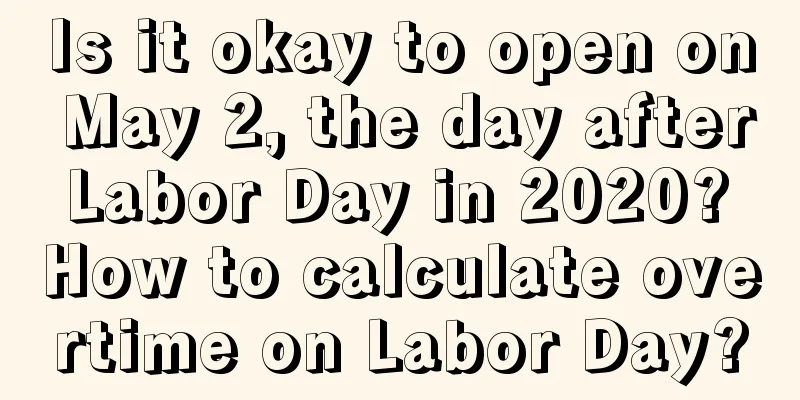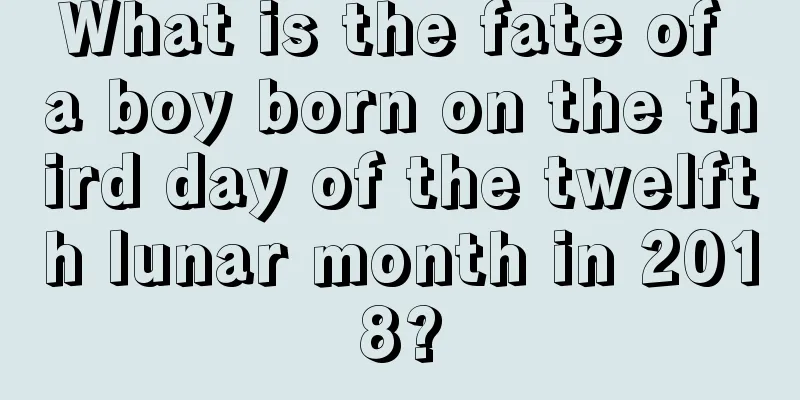What are the legends about the Dragon Raising its Head on February 2?

my country's folk culture is followed by one or several related legends and stories. As a traditional festival, the Dragon Raising its Head certainly has its own legends and stories. The editor has compiled some legends about the Dragon Raising its Head on February 2. If you want to know more about the second month of the lunar calendar in 2018, please pay attention to our fortune teller website!Pick up grandmaAnother important activity on the second day of the second lunar month is to welcome the "aunt", that is, the bride's family takes back the married daughter, hence the saying "welcome the baby on the second day of the second lunar month". Because the old Beijing people have many etiquettes, one of which is that the "aunt" cannot live in her parents' home during the first month of the lunar year. After visiting her parents' home to pay New Year's greetings on the second day of the lunar year, she must return to her husband's home on the same day, especially for newly married "aunts". But on the second day of the second month, her parents would come to pick her up and ask her to stay for a few days or half a month. One reason was that she had been busy for a long time in the first month of the year and was quite tired, so they wanted to take her back to her parents' home to have a good rest; the other reason was that the new year had just begun and they would be busy again, so they wanted to reward her. Spring pancakes, also known as thin pancakes, are usually served as a treat. During the days after being brought back, "Grandma" spent her time eating and drinking, visiting neighbors and chatting, and her life was relaxed and happy.Emperor plowing the fieldsAnother activity on February 2nd was the emperor plowing the fields. Because the second day of the second month of each year is almost around the time of Jingzhe, "on Jingzhe, the soil is plowed and the earth's energy flows during the Spring Equinox." From then on, it is the busy time for spring farming in the north. In order to mobilize people to quickly engage in spring farming and not miss the farming season, on February 2, the emperor would symbolically lead all officials out of the palace to loosen the soil in his "one acre and three points of land". The emperors of the Ming Dynasty and the early Qing Dynasty would go to the Xiannongtan to plow and loosen the soil on the second day of the second lunar month every year. Starting from Emperor Yongzheng of the Qing Dynasty, the emperors changed the practice of leaving the Old Summer Palace and going to the "Yimu Garden" (now on the west side of the Old Summer Palace in Haidian) to plow the fields on the second day of the second lunar month every year. In the past, there was a New Year picture called "Emperor Ploughing the Field". In the picture, an emperor wearing a crown and a dragon robe is plowing the field with his hand. Behind him is a minister who is holding a bamboo basket in one hand and sowing seeds with the other. The person leading the cow is a seventh-rank county magistrate in a long robe. In the distance are the empress and palace maids carrying baskets to deliver food. There is also a doggerel poem inscribed on the painting: "On the second day of the second month, the dragon raises its head. The emperor plows the land and his ministers drive the oxen. The empress always delivers meals and the ministers of the court throw away the seeds. The world is led by spring ploughing and summer weeding, and there is a bumper harvest and a peaceful autumn." This painting also shows that people hope for an enlightened emperor who can personally plow the land in spring and weed the land in summer so that the people can have enough food and clothing.The story of Wu Zetian and the Dragon Raising its HeadAccording to legend, when Wu Zetian became emperor, the Jade Emperor ordered that no rain should fall on earth for three years. However, the Jade Dragon in charge of the Milky Way could not bear to see the people suffer from the disaster and starve, so he secretly sent down a heavy rain. When the Jade Emperor found out, he knocked the Jade Dragon in charge of the Milky Way down from the Heavenly Palace and pressed him under a huge mountain. There is also a monument at the foot of the mountain, on which is written: The Dragon King violated the rules of heaven by bringing rain, and should be punished by the mortal world for thousands of years. If you want to climb Lingxiao Pavilion again, you have to wait until the golden beans bloom. In order to save the Dragon King, people searched everywhere for the flowering golden beans. On the second day of the second month of the following year, people were turning over and drying the golden corn seeds when they suddenly remembered that the corn was like golden beans. If they were fried and blossomed, wouldn't that be the golden beans blossoming? So every household popped popcorn, set up an table in the yard, burned incense, and offered the "blooming golden beans" for the Dragon King and the Jade Emperor to see. The Dragon King knew that it was the people who were saving him, so he shouted to the Jade Emperor: "The golden beans are blooming, let me out!" When the Jade Emperor saw the golden beans blooming in the yards of every household on earth, he had no choice but to issue an edict, ordering the Dragon King to return to heaven and continue to create clouds and rain for the world. From then on, it became a custom among the people that on the second day of the second lunar month, people would pop popcorn and fry beans. Adults and children alike would chant, "On the second day of the second month, the dragon raises its head, the big granaries are full, and the small granaries are overflowing." In some places, stove ash is spread into big circles in the yard, and grains are placed in the middle, which is called "da granary" or "filling the granary." The meaning is to wish for a good harvest and full granaries in the new year. During festivals, it is common to add the title of "dragon" to the names of foods. Eating dumplings is called eating "dragon ears"; eating spring rolls is called eating "dragon scales"; eating noodles is called eating "dragon whiskers"; eating rice is called eating "dragon seeds"; eating wontons is called eating "dragon eyes".Legend of the Dragon Raising its Head on February 2: Fuxi and the Dragon Raising its Head on February 2 FuxiLegend has it that this festival originated in the period of Fuxi, the first of the Three Sovereigns. Fuxi "attached great importance to agriculture and farming" and on the second day of February every year, "the empress brought food and the emperor personally plowed the fields", taking care of his one and a half mu of land. Later, Huangdi, Tang Yao, Yu Shun and Xia Yu all followed the example of the former king. By the time of King Wu of Zhou, this traditional practice was not only continued, but also implemented as an important national policy. On the second day of the second lunar month, a grand ceremony was held in which all civil and military officials were required to personally till one acre and three mu of land. This is the historical legend of the Dragon Head Festival. |
<<: On February 2, the day when the dragon raises its head, what are the proverbs related to it?
>>: What day is the first day of the second lunar month in 2018? What month and date is it?
Recommend
Is the 25th day of the 10th lunar month in 2017 a good day for offering sacrifices?
Introduction: Chinese people consider sacrifice to...
Is the ninth day of the fifth lunar month in 2017 an auspicious day? Is it good to get married?
Introduction: Marriage is one of the most importan...
What are the climatic characteristics of the Jingzhe solar term? Will there be thunder and rain during the Jingzhe period?
Jingzhe is one of the 24 solar terms in my country...
Why can’t you move house in the twelfth month of the lunar calendar? Things to pay attention to when moving house!
There are auspicious and inauspicious days, and th...
Is the 21st day of the seventh lunar month in 2017 a good day? Is it a good day to open a new store?
Introduction: Although life is not easy for many p...
Is May Day 2022 an auspicious day to pick up a car? What Feng Shui should we pay attention to?
I believe many of my friends have heard that you n...
What month is the third month in the lunar calendar? What festivals are there in the third month of the lunar calendar?
I believe everyone is familiar with months, but no...
The fate of a boy born on the ninth day of the sixth lunar month in 2022
The fate of a boy born on the ninth day of the six...
List of auspicious days for moving into a new house in April 2020, how to choose an auspicious day for moving
Introduction: It is very important to choose an au...
Query of auspicious and inauspicious times on the 19th day of the third lunar month in 2020
There are auspicious days and inauspicious days. ...
How many times will there be a leap April in the 21st century? A list of auspicious days for setting up a bed in leap April 2020
Introduction: Leap April is a special month. How m...
Will it definitely rain during the Grain Rain solar term? What is the saying about offering Grain Rain Sacrifice to Cangjie?
Introduction: Grain Rain is one of the 24 solar te...
Can I open a business on the 14th day of the first lunar month in 2018? What is a suitable day to open a business in the first lunar month?
January 1st of the lunar calendar is the Spring Fe...
Is it suitable to travel far away during the National Day in 2020? Is it appropriate to go to Lhasa during the National Day?
Introduction: You need to choose an auspicious day...
Is May 27th of the lunar calendar in 2017 a suitable date for engagement? How about getting engaged?
Introduction: Engagement is one of the traditional...









